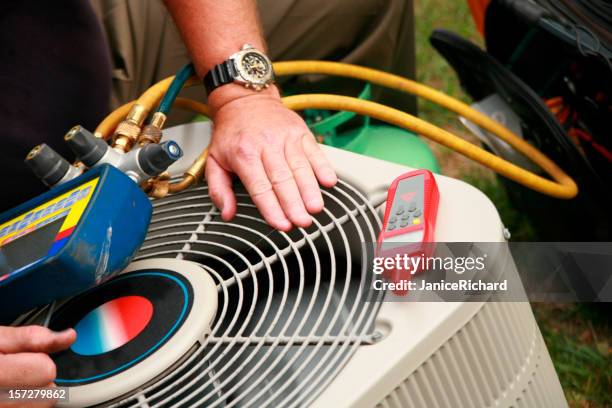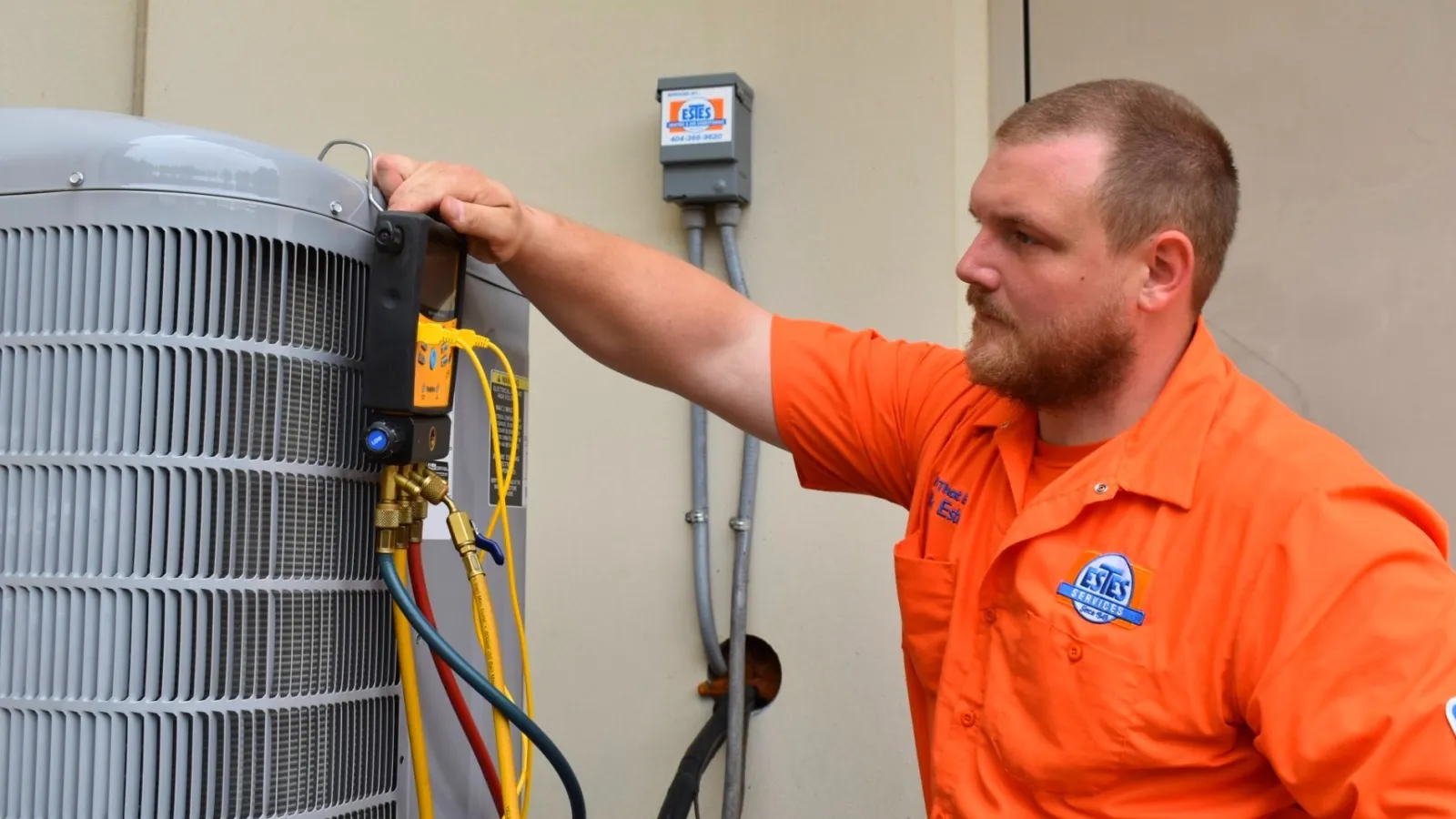Key Information Before Installing ductless mini splits
Key Information Before Installing ductless mini splits
Blog Article
Selecting Between a Warmth Pump and Heating System: Secret Factors To Consider for Your Cooling And Heating Requirements
When examining heating alternatives for HVAC requires, the choice between a warmth pump and a furnace can be complicated. Each system offers unique advantages customized to particular climates and energy effectiveness goals. Understanding these differences is crucial for making an enlightened choice. Secret variables such as installment costs and ecological influence even more make complex the selection procedure. Which option really lines up with one's comfort and sustainability choices? The complying with areas will certainly check out these considerations carefully.
Comprehending Warm Pumps: How They Function and Their Benefits
While many home owners take into consideration different heating options, comprehending just how heatpump feature and their benefits can considerably affect their decision. Heatpump operate by transferring warmth as opposed to producing it. In the winter, they draw out warmth from the outside air or ground and transfer it indoors, while in the summer season, they reverse this process, cooling down the home by removing heat outside. This double capability makes them flexible for year-round environment control.One of the main advantages of heatpump is their energy efficiency. They use considerably much less electricity contrasted to conventional heating unit, possibly resulting in lower utility expenses (furnace replacement). Furthermore, warmth pumps have a smaller sized carbon impact, making them an environmentally friendly choice. They likewise call for less maintenance than traditional systems, contributing to long-term cost savings. Generally, understanding the mechanics and advantages of heatpump can aid homeowners make educated decisions regarding their heating and cooling down needs
Checking Out Furnaces: Types, Operation, and Benefits
Heaters can be found in numerous kinds, including gas, electrical, and oil designs, each with distinctive functional systems. Recognizing these distinctions is vital, as they impact performance and home heating efficiency. In addition, heating systems use countless benefits, such as constant warmth result and dependability in chillier environments.
Kinds of Heating systems
Heater can vary significantly in design and operation, with heaters being a prominent option among property owners. There are a number of kinds of heating systems, each using different gas resources and technologies. Gas heating systems are typical, leveraging gas to create heat successfully. Electric heaters, on the various other hand, utilize electric resistance to generate heat, usually preferred for their simple installation. Oil heating systems, while much less usual, work in areas with minimal gas gain access to (furnace replacement). In addition, condensing furnaces optimize energy performance by capturing and reusing exhaust gases. Each kind operates via a system of warmth exchangers and ductwork to disperse cozy air throughout a home. Understanding the distinctions in between these furnace kinds is vital for educated HVAC choices
Advantages of Heating systems
For homeowners seeking reliable heat during cold months, the benefits of heating systems are substantial. Heaters provide regular home heating, guaranteeing even temperatures throughout the home. They are especially reliable in severe cool, typically outperforming heatpump in icy problems. Numerous kinds, consisting of gas, electrical, and oil heating systems, provide flexibility to meet diverse needs and preferences.Furnaces also have a tendency to have reduced first installment prices contrasted to warmth pumps, making them a more easily accessible alternative for many. Their robust design adds to a much longer life expectancy, with lots of devices lasting over 15 years with correct maintenance. Furthermore, contemporary heating systems are commonly equipped with innovative modern technology for boosted performance, which can bring about minimized energy expenses. In general, heating systems stay a reputable selection for effective home heating.

Power Efficiency: Comparing Warmth Pumps and Furnaces
When comparing power performance between warmth pumps and furnaces, the Seasonal Power Effectiveness Ratio (SEER) plays a crucial function in establishing performance. Furthermore, a functional price evaluation reveals the long-lasting monetary effects of each system. Understanding these elements can assist homeowners in making informed decisions concerning their home heating solutions.
Seasonal Energy Effectiveness Proportion
Power performance plays an important function in the decision-making process between warm pumps and heaters, specifically when considering the Seasonal Energy Efficiency Ratio (SEER) This metric measures the cooling efficiency of heatpump over an entire air conditioning season, giving a standardized way to assess performance. Higher SEER rankings show better power performance, converting to reduced energy usage and decreased utility bills. In contrast, heaters are generally evaluated utilizing the Annual Fuel Application Performance (AFUE) ranking, which shows heating efficiency. When comparing these 2 systems, home owners need to focus on SEER rankings for heatpump, as they directly impact overall power financial savings and ecological sustainability. A comprehensive understanding of SEER can notably influence the long-term complete satisfaction and cost-effectiveness of the chosen heating and cooling service.
Operational Cost Analysis
Comprehending the functional expenses associated with heatpump and furnaces is essential for property owners assessing their options. Warmth pumps commonly use higher power efficiency, transforming electrical power into warmth with very little waste. This causes reduced regular monthly energy expenses, particularly in moderate climates. Conversely, standard furnaces, especially gas models, might have reduced in advance prices however can sustain higher operational expenditures gradually due to sustain prices and performance ratings.Moreover, heatpump can operate as both heating and cooling down systems, potentially lowering the need for click this different heating and cooling units. While initial financial investments for heatpump might be greater, their long-lasting savings in power effectiveness can make them an extra cost-efficient option for several families. Cautious analysis of regional power prices is important to determine the most effective choice.
Installment Prices: What to Expect for Each Heating System
Setup expenses for furnace can differ substantially in between heatpump and furnaces, influencing house owners' decisions. Heat pumps typically have higher upfront setup costs, normally varying from $3,500 to $8,000, depending upon the system dimension and complexity of setup. This includes the outdoor system, indoor handling system, and required ductwork modifications. Conversely, furnaces tend to have reduced first prices, balancing between $2,500 and $6,000, which can be appealing for budget-conscious property owners. Installment expenditures can increase if extensive ductwork is required.Moreover, the choice of gas type for furnaces-- all-natural gas, lp, or electric-- can additionally affect installation prices. While warm pumps supply energy efficiency, their first investment may hinder some purchasers. Ultimately, reviewing setup costs along with long-term financial savings and effectiveness will certainly help property owners in making educated decisions concerning their furnace.
Environment Considerations: Which System Performs Better in Your Location
Exactly how do environment conditions affect the effectiveness of heater? The performance of warm pumps and furnaces can differ greatly depending upon the regional climate. In moderate climates, heatpump succeed by efficiently moving heat from the outside air, making them an energy-saving alternative. Their efficiency decreases in exceptionally cold temperatures, where they might have a hard time to remove sufficient warm. Alternatively, furnaces, particularly gas designs, give trustworthy and consistent warmth regardless of outdoor conditions, making them more effective in chillier regions.In locations that experience milder winters months, warmth pumps can run efficiently year-round, supplying both home heating and air conditioning. In comparison, areas with rough winters commonly gain from the effectiveness of heaters. Eventually, understanding the neighborhood climate is important when deciding in between a warmth pump and a heater, as it straight impacts their operational effectiveness and general performance.
Maintenance Requirements: Long-Term Take Care Of Warm Pumps vs. Furnaces
While both heat pumps and heaters need regular upkeep to guarantee peak efficiency, their specific requirements and care regimens differ substantially. Heating systems normally need much less regular focus, with yearly inspections being enough to look for gas leaks, tidy filters, and evaluate overall capability. Their easier layout commonly enables straightforward repairs.In contrast, heatpump require semiannual maintenance due to their twin function in heating & cooling. This consists of cleaning coils, inspecting refrigerant levels, and making certain that both the indoor and exterior devices function at their ideal. Additionally, heatpump upkeep typically entails even more elaborate components, making professional servicing essential.Neglecting maintenance can result in decreased efficiency and enhanced energy expenses for both systems. Ultimately, home owners must think about these long-term treatment requirements when picking between a warmth pump and a furnace, as aggressive maintenance can extend the life-span and performance of either system significantly.
Ecological Effect: Choosing a Sustainable Heating Alternative
The environmental effect of heater is a critical analysis for house owners looking for sustainable options. Heatpump are normally extra energy-efficient than traditional furnaces, as they transfer warm instead of create it, significantly decreasing carbon emissions. By using renewable resource resources, such as air-source or geothermal warm pumps, home owners can even more minimize their environmental footprint.On the other hand, all-natural gas furnaces give off greenhouse gases and contribute to air contamination, though they typically supply higher heat outcome. Nonetheless, innovations in innovation have brought about the growth of high-efficiency heating systems that reduce emissions.Ultimately, selecting a heating unit entails weighing efficiency versus ecological influence. Homeowners are urged to assess local energy sources and incentives for eco-friendly systems, making certain an option that aligns with both personal convenience and environmental duty. The decision influences not just immediate comfort but additionally long-lasting sustainability and ecological health.
Frequently Asked Inquiries
For How Long Do Heat Pumps and Furnaces Generally Last?
The life-span of heatpump commonly ranges from 15 to twenty years, while heaters can last in between 15 to 30 years. Routine upkeep substantially impacts their long life and performance in providing heating solutions.
Can I Make Use Of a Warm Pump in Very Cold Climates?
Warmth pumps can run in very cool environments, but their performance decreases as temperatures drop. In such conditions, supplemental heating sources may be required to preserve comfortable indoor temperature levels this website and assure peak efficiency.

What Is the Sound Level of Heat Pumps Versus Furnaces?
The sound he said degrees of heatpump and furnaces differ significantly. Normally, heatpump operate even more quietly than typical furnaces, making them preferable for those conscious sound, while heaters may produce louder operational noises throughout heating cycles.
Are Warm Pumps Suitable for Both Home Heating and Cooling?
Warm pumps are certainly appropriate for both heating & cooling (heat pump service). They function by moving warm, offering efficient temperature level control year-round, making them a flexible choice for property owners seeking an all-in-one HVAC option
What Dimension Heating Unit Do I Required for My Home?
Determining the proper dimension furnace for a home needs evaluating aspects such as square footage, insulation high quality, neighborhood environment, and the home's format. Consulting a professional can ensure an exact assessment and optimal convenience. Heat pumps usually supply higher energy effectiveness, converting electrical power right into warmth with minimal waste. In moderate climates, warm pumps stand out by effectively moving warmth from the outdoors air, making them an energy-saving alternative. Conversely, furnaces, particularly gas designs, supply trusted and consistent warm regardless of outside problems, making them better in colder regions.In locations that experience milder winter seasons, warm pumps can run efficiently year-round, supplying both home heating and air conditioning. Heat pumps are normally more energy-efficient than traditional furnaces, as they move warmth instead than produce it, considerably minimizing carbon discharges. By using sustainable energy sources, such as air-source or geothermal warm pumps, homeowners can further minimize their environmental footprint.On the various other hand, all-natural gas furnaces send out greenhouse gases and contribute to air pollution, though they frequently supply greater warm output.
Report this page